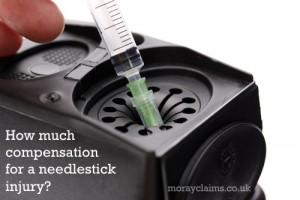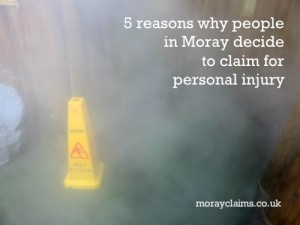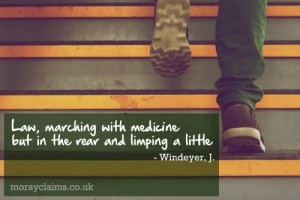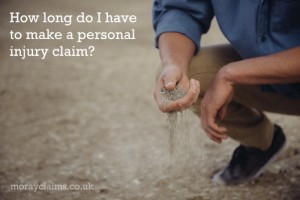“I had finished cleaning the floor and was just doing a final check before going for my break. I noticed I had missed some scrunched up toilet paper lying on the floor in one of the cubicles. As I picked the papers up with my right hand, I suddenly felt a burning pain between my index finger and my thumb. When I looked at my hand, I could see there was a needle which had pierced my skin there. It must have been hidden in the bundle. I was stunned and felt physically sick. I was so shocked I had to sit down for 10 minutes until I got my wits back.” Needlestick injuries are one type of “sharps” injury. A sharps injury happens when a needle, blade (e.g. a scalpel) or other medical instrument penetrates the skin. It's a frightening injury because even a pinprick can have such significant consequences for your health. Who is at risk? This type of injury is an occupational hazard if you work in the health or social care sector, especially for those who directly handle sharps. In our Continue Reading
5 Reasons Why People In Moray Decide To Claim For Personal Injury
Our Personal Injury solicitors, Marie and Peter, have been handling claims on behalf of people in Moray for quite a few years now. Of the clients we have helped, probably none relished the prospect of making a compensation claim. Many had some sort of “objection” or problem in their minds, which they had to overcome before deciding to go ahead. The cynical “Compensation Culture” view is that it’s all about getting money. It has to be partly about money because that’s how the law of personal injury works but, in our experience, it’s not the whole story by any means. We’ve collected comments from injured people we have helped in Moray and this article sets out some of the most common motivating factors behind their claims. As you will see, some of the themes overlap a bit. Here are 5 reasons why people in Moray decide to claim for personal injury losses. You incur significant loss of earnings If you’ve been injured and have to take time off work in order to recover, you may not Continue Reading
The Most Important Medical Negligence Case Of The Last 30 Years?
A Lanarkshire mother’s 15-year quest to obtain compensation for injuries her son suffered during birth has ended successfully. Her claim failed twice in the Court of Session but her second and final right of appeal - to the Supreme Court – found all 7 judges to be in her favour. Her solicitor, Fred Tyler of Balfour & Manson, Edinburgh, described the Supreme Court’s decision as “almost certainly the most significant medical negligence judgement in 30 years - a momentous decision which will affect the doctor-patient relationship throughout the UK.” Was he correct to describe it as the most important medical negligence case of the last 30 years? In this article, we look at various ways in which the case of Montgomery –v- Lanarkshire Health Board is significant. Facts of the case Nadine Montgomery is diabetic and gave birth to her son, Sam, in 1999 at Bellshill Maternity Hospital in Lanarkshire. Diabetic women are more likely to have larger-than-average babies and Mrs. Montgomery Continue Reading
How Long Do I Have To Make A Personal Injury Claim?
I recently had to travel to a family funeral in Germany with my wife. We flew with KLM from Aberdeen to Cologne via Amsterdam. On the way there, we had one hour in Amsterdam Airport to catch our connecting flight. From previous experience, we knew this might be a problem. Schiphol is a sprawling airport. It is designed as a central hub with “spokes” going off from the centre and, on each spoke, there are up to 30 Gates. Gates with low numbers are close to the central hub and Gates with higher numbers are further out. On arrival at Amsterdam, we were on time. The aircraft’s parking stance was at Gate C18 and we understood we had to get to Gate D4. “C” and “D” are two different spokes, so we would have to get from one Gate to the other via the hub. When we checked the departure boards, we found that the departure Gate had been changed to D28. Travelator walkways on the spokes help to speed you on your way but, at the hub, we had to go through Security again and there Continue Reading



